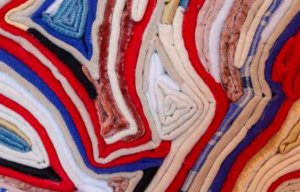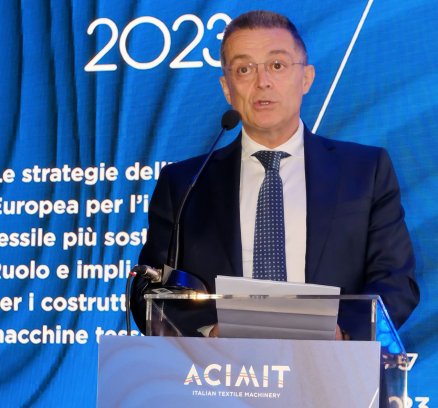
Industry could be 80% circular by 2030
Don’t underestimate the sustainable policies of the brands, says ACIMIT president.

16th July 2024
Innovation in Textiles
|
Milan
The need to remain focused on innovation despite current geopolitical uncertainties was emphasised during the General Assembly of ACIMIT, the Italian Textile Machinery Manufacturers Association, held in Milan on July 9th.
ACIMIT president Marco Salvadè presented data for 2023 revealing that the production of Italian textile machinery fell by 16%, settling at a value of €2.3 billion, while exports also fell by 16% with a value of €2 billion.
China, Turkey, India and the USA remain the main destinations for Italian textile machinery and in 2023, demand in these markets was weak. Some positive signals, however, have emerged in the first quarter of the current year, especially from the Chinese market.
“This year is, however, still characterised by many uncertainties resulting in fluctuations in final demand,” Salvadè said. “Our sector is renowned worldwide for its reliability, know-how and the uniquely Italian ability to combine tradition and innovation. Accelerating innovation remains crucial, particularly to meet the challenges that await Italian manufacturers in supporting textile companies on their sustainable transition journey.”
To highlight the opportunities the European green transition opens up for technology suppliers, the public section of the ACIMIT General Assembly addressed a very current issue – textile recycling.
The EU’s legislative guidelines aim to accelerate the circular transition of the textile sector with a range of actions, from ecodesign to EPR and from waste export regulations to green claims. Meanwhile, there is a growing demand for recycled textile fibres driven by the sustainable policies of brands that should not be underestimated.
Technologies will play an important role in providing solutions to companies engaged in the new circularity supply chain – from sorting and the selection of garments to the preparation phases and recycling processes.
During the event, several speakers stressed that the experience and capabilities of the Italian textile and textile machinery sector should be fully leveraged at this crucial stage for the entire supply chain.
“Textile machinery companies intend to increase R&D activities in this area, collaborating with their textile customers in the belief that the circular transformation of business models also represents an opportunity for technology suppliers to increase their competitiveness,” Salvadè concluded.

Business intelligence for the fibre, textiles and apparel industries: technologies, innovations, markets, investments, trade policy, sourcing, strategy...
Find out more